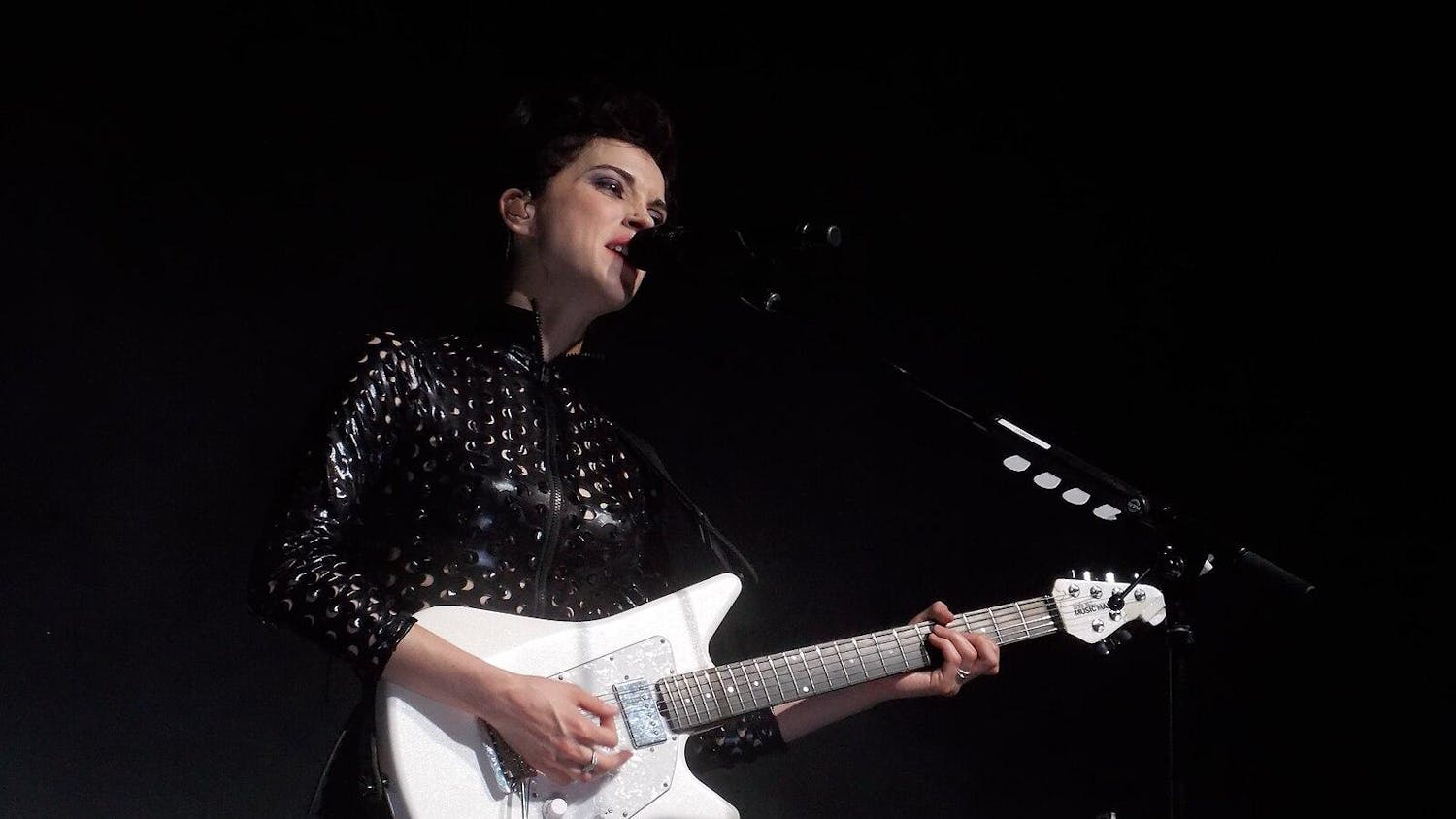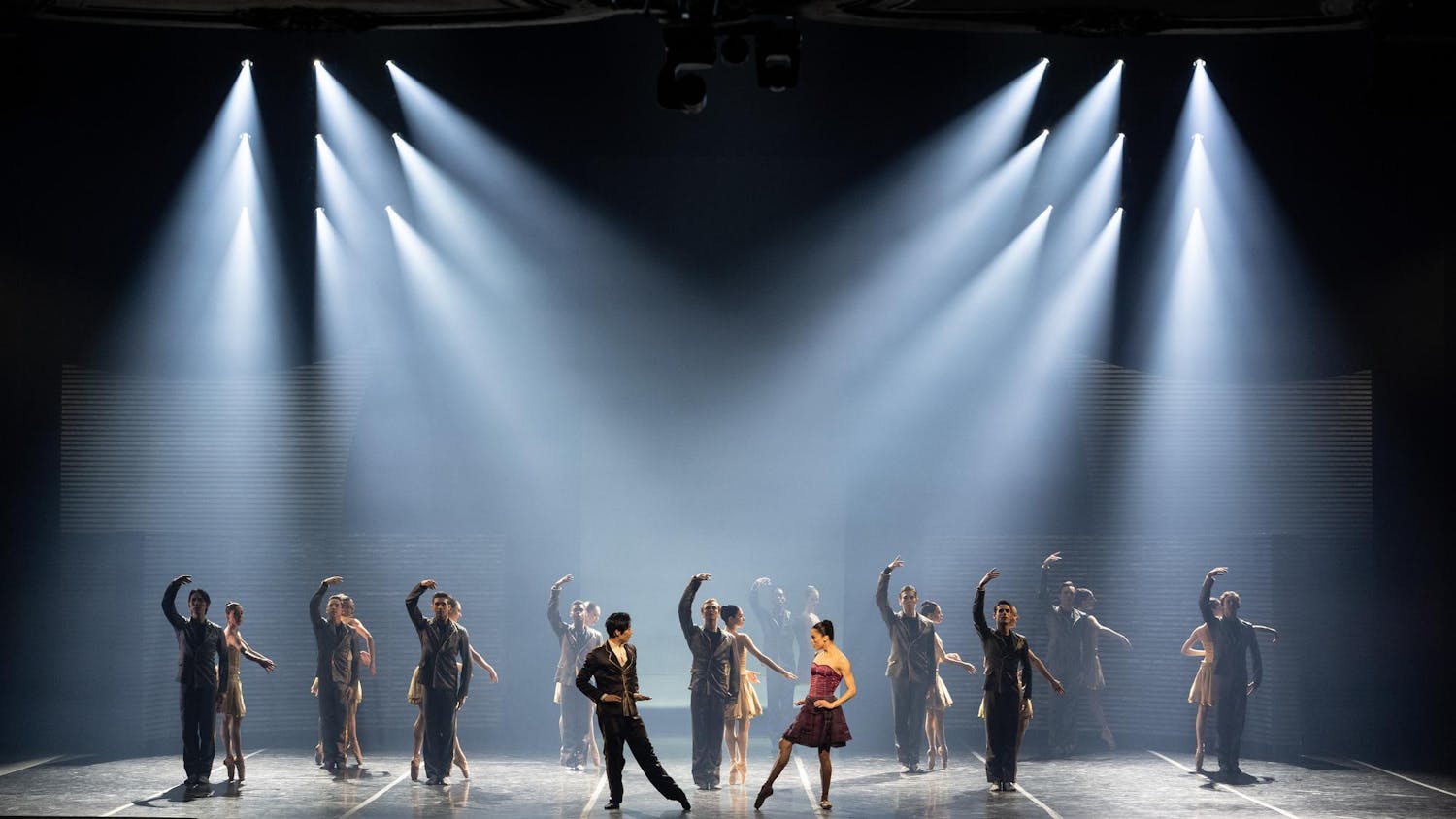At the beginning of her one-woman performance, Carrie Fisher, sprinkling glitter all about and frolicking across the stage, asks the audience to join her "on a journey." Though the line is delivered as facetiously as possible, what the laughing audience doesn't realize is that Fisher's narrative will truly take them for a ride.
"Wishful Drinking," written and performed by Fisher and playing at the Huntington Theatre Company through Oct. 26, is essentially an hour and a half of Hollywood gossip and tragedies wittily transformed into Fisher's own unique brand of self-deprecating humor.
To give a better idea about how and why the play came into being, Fisher tries to offer an explanation: "This show is a pathetic attempt to make up for the lack of attention at my birth," she says, an event during which her father, the singer Eddie Fisher, fainted and took away all of the nurses' attention. This is just one of many personal anecdotes Fisher manages to steer toward laughter, avoiding the just plain sad.
Her ability to speak nonchalantly about her life — to sit in an armchair and share jokes about being bipolar or to display pictures of the many women her father dated and/or married — relies on her audience's readiness to laugh at her jokes. Half of the time those watching can't believe she's actually speaking so lightly about waking up next to her dead, drug-abusing, gay, Republican friend, so they simply laugh out of disbelief.
Similarly, her chatter about Hollywood life is entirely dependent on the audience's ability to be in on the joke. Though she does dip into recent events at times (referring to her mother-father-Elizabeth Taylor love triangle as a precursor to Jennifer-Brad-Angelina), the bulk of her laughs are earned by retelling the audience what they already know in a repackaged, funny way.
For instance, the show opens with Fisher singing "Happy Days Are Here Again" as real headlines about traumatic things happening in her life (her parents' divorce, her second husband announcing he's gay, her announcing she's bipolar, etc...) scroll across an enormous screen behind her. Though this scene could be funny without any outside knowledge of Fisher and her unusual life, those laughing hardest will already know the story and will better appreciate hearing how she speaks about it.
To her credit, Fisher manages to pull off a performance entirely about her own life without looking arrogant or pathetic. She actively pursues audience participation, turning on the house lights frequently and inviting people up on stage to help her figure out how the $300 sex doll of herself as Princess Leia is supposed to work.
By reeling audience members into her show, and, arguably, her life, she appears to be sharing a few laughs with friends as opposed to standing on stage alone firing jokes into a crowd. In fact, Fisher announces at the start that by the end of the show, the audience will know her so well that many will (according to her) "feel the need to divorce (her), and for that reason there is a team of lawyers waiting in the lobby."
Though highly entertaining, Fisher's performance should not be viewed with any expectations of deep, emotional revelations. She has led an eccentric life packed with comedic episodes, but no real emotional conclusions can been drawn by the end of the evening. Of course, the show is a performance, not a therapy session, so a lack of personal soul sharing can be excused. It appears that this performance is Fisher's way of proving to the world that not only does she know how to look at her life in a comedic and healthy way, but she wants to share the experience with others.
--
Starring Carrie Fisher
Directed by Tony Taccone
At the Boston Huntington Theatre from Oct. 10-26





